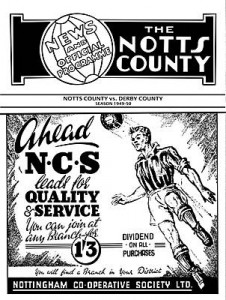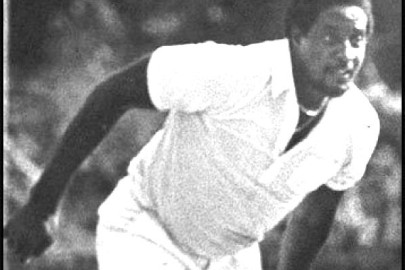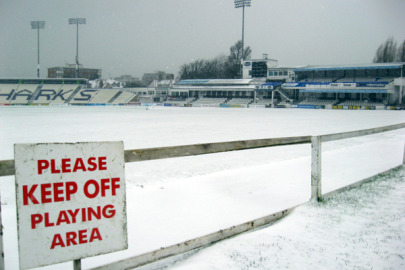James Hamilton continues his ‘The Football Fan Delusion’ series by exposing the working class myth of Professionalism…
Most of the current fan myths about British football are of fairly recent origin, but versions of this one have been circulating since the Edwardian era: that the coming of professionalism marked a terrific victory for the working man over the toffs. Like an episode of Sharpe, only in sport. And of course, given its class content, it’s a favourite myth of academic football historians who want to talk Marxism whilst still being one of the lads.
Simply put, the tale goes like this. The early days of football were dominated by public school toffs. They ran the FA, and ordinary people couldn’t get a look in. In the industrial cities, men couldn’t afford to take time off work, so didn’t play. But then came professionalism, and all this changed: within a few years, the working man had triumphed, and the public schoolboys had gone over to rugby, a sport for the chinless upper classes.
It wasn’t really like that, and not least because the FA’s gripe with professionalism had little to do with class in the first place. The problem wasn’t snobbery: it was corruption.
As racing has always known, and as cricket is rediscovering, the combination of sportspeople who make a living from sport on the one hand, and the possibility of a fast buck on the other, is dangerous. Victorian athletics owed its entire existence to gambling and had lost all credibility before the AAA took over. Pre-Golden Age Cricket had needed rescue and revamp, saving from the bookmakers, and this had been managed – just! by some of the same men who now ran the Football Association.
No one was excluded from football. Then as now, the vast majority of English footballers played in pub teams, factory sides, church elevens. Few public school teams played at the top level alongside Old Etonians or Carthusians. What the Football Association faced was this: since about 1876 – well before the legalization of professionalism, well before the founding of the Football League – new wealthy northern industrial clubs were paying players under the table. These players were not always local men who needed compensation for their time off from the factory. They were just as often Scots, imported from the footballing hotbeds of Ayrshire and Glasgow to boost the gates and multiply club profits.
Preston North End were notorious for this practice, but not alone. They were expelled from the FA Cup for paying players, and, as a direct consequence, professionalism was legalized the following year, 1885. The compromise that came with that concession – that paid players either had to have been born within six miles of the ground or had to have lived within six miles of the ground for two years or more – was immediately and completely ignored.
The alternative facing the FA had been a breakaway by professional clubs. Although legalization prevented that outcome, it failed to prevent financial corruption from taking hold in English football. In 1893, Preston chairman William Sudell was jailed for embezzling £5000 – the equivalent of half a million pounds today – from his firm in order to feed his club’s coffers. In 1906, Manchester City were forced to part with most of their best players after paying illegal bonuses. In 1919, Herbert Chapman was banned from football for life as a consequence of the Leeds City scandal: the club itself ceased to exist. There were many other instances: those are merely highlights. And the players themselves laboured under “contracts” that made them, in effect, indentured servants of their clubs. The starving ex-footballer, begging from old mates at the changing room door, was a familiar figure of the 1890s and 1900s.
Nor did professionalism make football an exclusively working class sport. Public schoolboys turned out for top clubs and England for another thirty years. Amateurs played for First Division clubs, including Chapman’s dominant 1930s Arsenal side, until World War II. Today, more public schools play association football than ever before, and some, like Whitgift, offer scholarships and bursaries to talented footballers. Alumni like Frank Lampard and Victor Moses represent their schools in the Premier League.
And rugby, the game for chinless toffs? The first black rugby union international, Jimmy Peters, was a docker from Liverpool, and turned out for England against Scotland in 1906. The first black British soccer international, Viv Anderson, wouldn’t get his chance for another 72 years.












Fascinating stuff, James. I had no idea the sainted Herbert Chapman was such a shady character. His ban for life in 1919 was obviously over-turned (just as well for the Gunners!). How? Also I had no idea Frank Lampard was a public schoolboy – who’d have thought?
Yes I love this post – always reassuring to know that the good old days were at least as bad as today. I did assume the ‘myth’ to be true.
Lampard is the only public schoolboy in the England squad, but doesn’t talk like one. English county cricket is currently dominated by public school alumni – state schools don’t play it and therefore barely produce any players any more, it’s a sad thing.
Shame about cricket. But it’s the same with pop music apparently: 60% of chart acts are privately educated.
Lack of music lessons at state schools are blamed. However, I suspect it’s to do with the music business becoming like the rest of the mature UK media: who you know is more important than ever and no-one networks better – or has better networks – than a public schoolie.
Very interesting read, there was no more working class footballer than Wilf Mannion, born hard up, died poor. Left his job as a fitter in the steelworks for the high life and the princely sum of fifteen quid a week, upset the football league and was sent to Coventry, not the football team however. Went back to fitting.
Are public schools full of toffs today? or the offspring of the new rich, Russian villains, African despots, Leftie writers done good, hookey lawyers, media management, footballers…that last one closes the circle.
Malty – were you aware of Wilf Mannion’s war service? He served with Hedley Verity, the England cricketer, and was with him when Verity was killed in Italy. Later on, medically devastated by his experiences, he was essentially nursed back to health by Bertie Mee, later manager of Arsenal.
Middlesbrough treated their players quite incredibly badly over the years. Clough got similar treatment, and there are many recollections of men who preferred to carry on in the steel industry and play at amateur level rather than take what Boro dished out. There’s another story there about professional clubs – the sheer amount of reasonable talent that they had available to them during football’s boom years (say 1890 to 1970 at widest) that they could do what they liked with them. Hire and fire.
At my public school football was only for the rejects who refused to play hockey or do cross country running, (like me) but we did have Peter Shilton’s son on our team, and he later went on to play for Coventry City, although I do note from wikipedia that he’s now currently in defence for Bedworth United
I think I can cheer you all up a bit!
If you run through the respective lineups of both the 2003 Rugby Union World Cup winners and the 2005 Ashes winners, you’ll find both overwhelmingly state educated.
I’d thought the opposite, and had planned an article around it. Had to scrap the idea when it turned out to be nonsense.
That’s interesting and reassuring about the cricket, James.
I definitely read an article recently about the dominance of public schoolboys in new county contracts, but it might have been specific to Gloucestershire and I can’t find the damn thing anywhere.
The ‘Chance to Shine’ programme reckons 40% of pro cricketers come from public schools (which educate 7% of boys)… but that’s still 60% state schools, so that’s not bad at all.